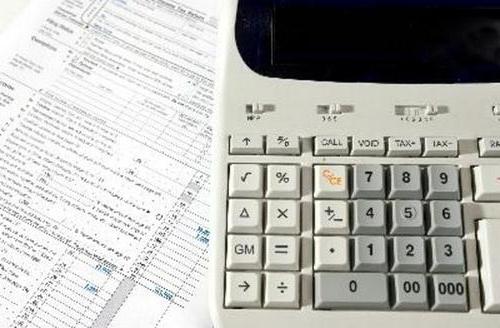Limitation period for personal taxes: clarifications for taxpayers
The legislation imposes on entrepreneurs, legal entities, citizens the obligation to pay taxes. These payments go to the budgets of different levels. The funds are then directed to the maintenance of the administrative apparatus, the army, the support of the poor categories of citizens, the development of projects, and so on. Taxes are thus the main source of budget revenue. Control over the completeness and timeliness of deductions is carried out by authorized state bodies. As a rule, they do not remind you of the need to make a payment; obligated entities in most cases must do this themselves. If the subject does not make contributions on time, tax debts are formed.
statute of limitations
As a legal concept, this category is used in procedural codes. The Code of Civil Procedure and the Code of Criminal Procedure, in particular, establish periods during which the subject can either submit an application with requirements, or appeal against one or another decision. Do taxes have a statute of limitations? In practice, a claim from a supervisory authority may go to court several years after the subject has failed to fulfill the obligation. In addition to the deduction amount itself, the Federal Tax Service may impose a fine.
The statute of limitations for personal taxes
First of all, it should be noted that there are no general rules or a single provision for obligated entities under which they would be exempted from the need to make a budget allocation in case of missing periods established by law. However, the legislation defines a number of cases when the control body is limited in its actions by time frames. What is the statute of limitations for taxes in the Tax Code? The legislation defines two categories of deductions, the forced deduction of which is limited in time. So, there is a statute of limitations for the vehicle tax. It is provided for in Part 3 of Art. 363 NK. The property tax is the second payment, the forced withholding of which is also limited in time. Federal Law No. 2003-1 applies to this payment.
Part 3 Art. 363 NK
In accordance with the provisions of the article, the recovery period is 3 years. Employees of the control body, if the subject has an outstanding obligation, have the right to apply to the court. They can do it in three years and one day. However, in this case, the court must refuse the application. The reason is the expiration of the statute of limitations.
Federal Law No. 2003-1
The property tax may also be compulsorily withheld no later than three years from the date of formation of the outstanding obligation. This rule is established by Art. 10 of said law. In this case, the following procedure applies. If the subject has not been involved in the forced repayment of the obligation within 5-10 years, then the control authorities can withhold the amount of the deduction only for the last three years. In general, the collection procedure is limited by the general limitation period. For taxes, in some cases, you should refer to the clarifications of the Ministry of Finance.

penalties
Many payers are interested not only in the statute of limitations for taxes of individuals. For them, the problem of forced retention of penalties and arrears is quite relevant. There are no provisions in the Tax Code itself that provide for certain time frames for the collection of such amounts or fines imposed by the Federal Tax Service. However, in practice, the courts often apply the norms of the Civil Code, and also adhere to the explanations given by the SAC.
Individual entrepreneurs
As part of law enforcement practice, when resolving issues of compliance or non-compliance with time limits, among other things, the limitation period for taxes on individuals (PBUL) and the periods determined for a possible audit during on-site inspections are considered. In addition, the periods established for bringing the subject to liability for violations of the tax code are taken into account. All these temporary restrictions fit into the above-mentioned limitation period for taxes of individuals - 3 years.
Important point
As mentioned above, the court may refuse the control authorities in their demand. However, this is only possible if the subject submits a petition indicating that the statute of limitations for paying taxes has already passed. If this is not declared, the court has the right to consider and even satisfy the requirements of the Federal Tax Service. Of course, a person can appeal the decision. In this case, the provisions of the Code of Civil Procedure will apply.

Stop periods
The Tax Code does not establish any rules regarding other types of mandatory contributions. There is no general procedure in accordance with which taxes could be written off for one or another period. In case of violation of rights, the control body applies to the court for their restoration. The authorized body is guided by the provisions of the law and the concepts of time limits.
And if the Tax Code establishes statute of limitations for at least two taxes, then the Code of Civil Procedure does not provide for such provisions specifically for this type of requirement. How do the judiciary act in this case? Suppose the Federal Tax Service makes a requirement to forcibly withhold land tax from the subject. There is no statute of limitations here. However, there is a cutoff period. It differs from prescription in that it does not begin from the moment the obligation to make a deduction arises, but from the date the request for payment of the imputed amount is sent. For legal entities, such a period has a duration of 2 years, for citizens - 6 months.
Contradictions of NK
The concept of the statute of limitations for collection of payment is very confused by the legislator. However, there are clarifications that are made in favor of payers. In itself, the concept of the statute of limitations has been introduced into law enforcement practice for a long time. If a certain period is missed, the creditor (including the state) loses the opportunity to forcibly withhold this or that amount. The legislation establishes a statute of limitations for cases of committing a tax offense. Among them, among other things, should be attributed arrears. Such a period is provided for in Art. 113 NK. It says that the subject cannot be held liable for a tax offense if 3 years have passed from the date of its commission or from the day following the end of the reporting (tax) period during which it took place. The general time frame set by the Civil Code is also three years. At first glance, everything is clear. However, not everything in the legislation is transparent in reality.
There is, in particular, Article 48 in the Tax Code. It states that an application to the court for a requirement to forcibly withhold the outstanding amount of a mandatory payment to the budget at the expense of the property of the payer - a citizen or his tax agent - can be submitted by the control body (FTS or customs service) not later than six months after the expiration of the period of performance of the obligation provided for by law. Thus, it can be quite logically concluded that Art. 48 of the Tax Code acts in favor of the subject. According to the norm, the three-year period is reduced to 6 months. But in the Tax Code there is Art. 70. In accordance with it, a claim for the payment of tax, which is presented to a person by decision of the control body after an audit, must be sent to the subject within ten days from the date of the decision. This provision can be interpreted as an unreasonable increase in the duration of the period almost to infinity.
This is due to the provisions of Art. 89 NK. In accordance with it, an on-site inspection, which is carried out by a higher division of the Federal Tax Service as part of the control of the activities of a lower structural unit that carried out the initial supervision procedure, can be carried out regardless of the time of the previous (initial) one. Accordingly, the decision can be made at any time. And the actual calculation of the statute of limitations already depends on the date of its issuance. At the same time, Art. 24, which was canceled due to the appearance of a "more progressive" part of the Tax Code. It clearly indicated the length of the statute of limitations for claims against individuals for forced withholding of taxes from them. She was 3 years old. 
Clarifications by YOU
The Presidium of the Court in Resolution No. 3803/01 actually confirmed the existence of the right of the tax service to withhold arrears in relation to income tax beyond the limits established in Art. 113 three-year term. This document was issued in a specific case. In particular, it states that, in accordance with the inspection act of the Federal Tax Service, a decision was made to charge additional income tax to the subject, impose fines and penalties. The Court of Cassation, canceling the decisions of the first and appeal instances, pointed out the groundlessness of the use of benefits by an individual entrepreneur. In accordance with this, the requirements were satisfied both in terms of withholding the arrears and the imputed fine for its admission. But when making a decision, the court of cassation did not take into account that the tax inspectorate missed the statute of limitations, within which the payer can be held liable.
According to Art. 113 of the Tax Code, the subject cannot be punished for an offense if three years have passed. Thus, the Supreme Arbitration Court in its decision recognizes that the statute of limitations applies only to fines, and does not apply to arrears. About a year after the adoption of this act, the Court expressed a slightly different opinion on this issue. Currently, therefore, the statute of limitations for arrears is 9 months. + time to fulfill the requirement. The calculation of this period starts from the date determined for the deduction of the mandatory payment by law.

Information letter of the Presidium of the Supreme Arbitration Court
This document explains one of the cases of judicial practice. The tax service applied to the arbitration court with a demand to forcibly withhold from the individual entrepreneur the arrears on UTII for March 1999, as well as penalties arising from the delay in repayment of this obligation. The control body's application was denied. The court motivated the decision by the fact that the pre-emptive period specified in paragraph 3 of Art. 48 of the Tax Code, within which it is allowed to file a claim. At the same time, the court indicated that, established in Art. 70 of the Tax Code, the three-month period for sending a request for the need to pay off the obligation to the budget ended on May 30, 1999. The amount itself had to be deducted no later than February 28, 1999. The demand was actually sent to the payer a year later - May 5, 2000. And the deadline for voluntary repayment of the obligation it was installed on May 15, 2000.
In accordance with paragraph 3 of Art. 48 of the Tax Code, the six-month period provided for the control body to apply to the court with an application for the forced collection of arrears, which is preclusive, begins from the end date of the time period established for the fulfillment of the budget obligation. Skipping by the tax service of the period in which it could send a claim for the payment of the amount imputed to the payer under the law does not imply a change in the rules for calculating the above period. In this regard, the period for the control body to apply to the court begins on 06/10/1999, that is, 10 days from the end date provided for in Art. 70 NC period. Due to the fact that the statement of claim was filed on September 27, 2000, that is, outside the restrictive period established in paragraph 3 of Art. 48 of the Tax Code, it is not subject to satisfaction.

Fulfillment of obligations to the budget
The legislation establishes that persons recognized as taxpayers must make the deductions provided for in the Tax Code. Obligations to the budget will be considered fulfilled from the moment the instruction is presented to the bank for the performance of the corresponding operation, provided that there is a sufficient amount of funds on the subject's account. If a person has outstanding payments and does not have sufficient funds to meet the claims, the tax will be recognized as unpaid. Obligations will also be considered outstanding if the order is withdrawn from the bank. If the payment must be made by a tax agent, then the requirement of the legislation is recognized as fulfilled from the moment he deducts the established amount from income. Failure to fulfill obligations to the budget acts as a basis for the application of coercive measures to collect arrears.
Actions of control bodies
Enforced collection is carried out in accordance with the decision of the Federal Tax Service. The procedure involves sending a collection order to a banking organization to debit funds from the account of the payer or agent. This order must be executed no later than 1 business day following the date of its receipt (for ruble settlements). In the absence or insufficient amount of funds in the payer's account, the fulfillment of the requirement of the Federal Tax Service is carried out as the money arrives. If the control body does not have information about the account of the subject, he has the right to recover the amount at the expense of the property of the obligated person. Compulsory collection of arrears is carried out by decision of the head of the department of the Federal Tax Service. Within a three-day period from the date of its issuance, a decision is sent to the bailiff. Its execution period is 2 months. Requirements are met sequentially with respect to:
- Cash.
- Property not involved in the production of goods.
- finished products.
- Materials and raw materials used directly in production, machines, buildings, equipment, structures, etc.
- Property that is transferred in accordance with the contract for the disposal, use, possession of other persons without obtaining the right of ownership.
- other material values.





